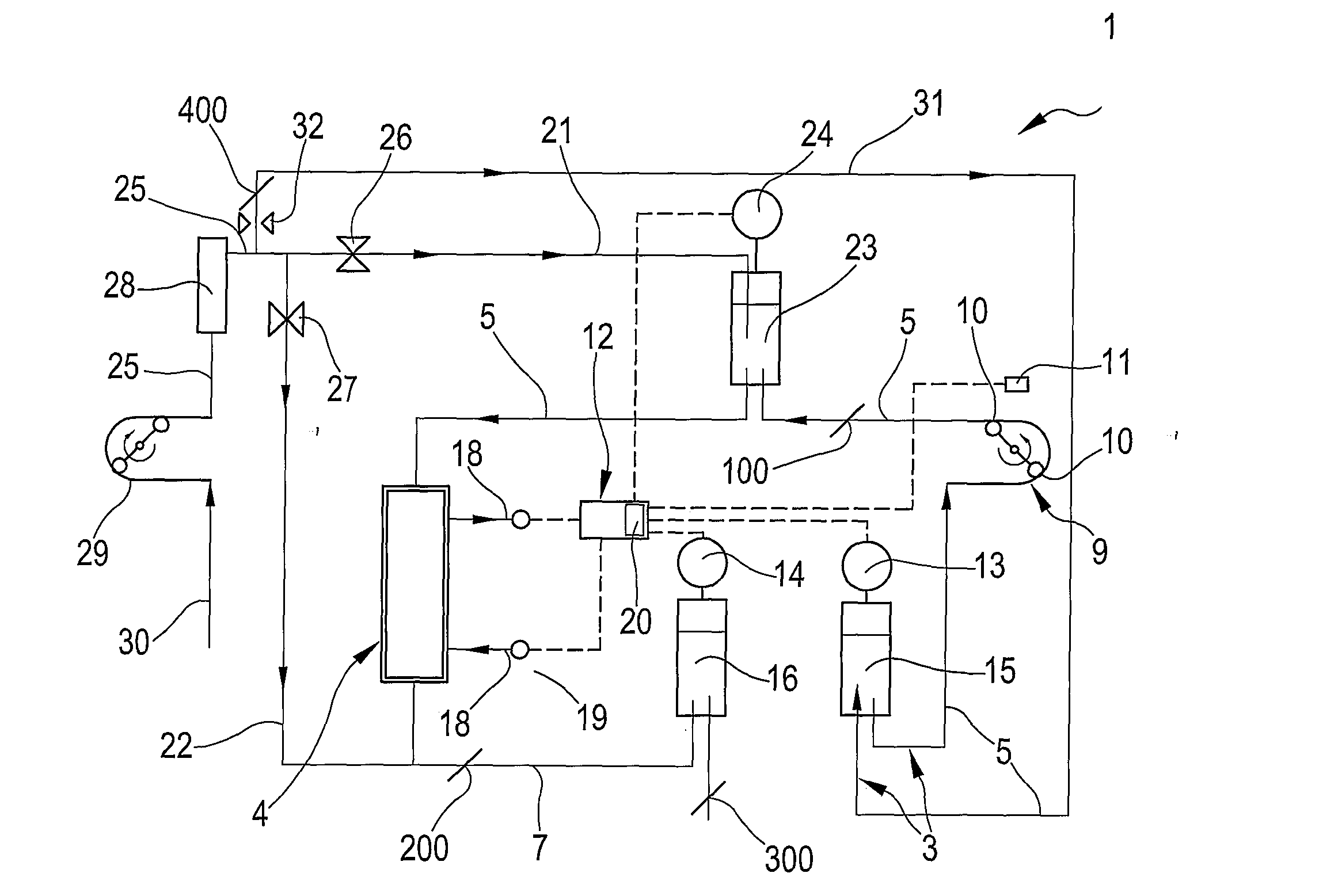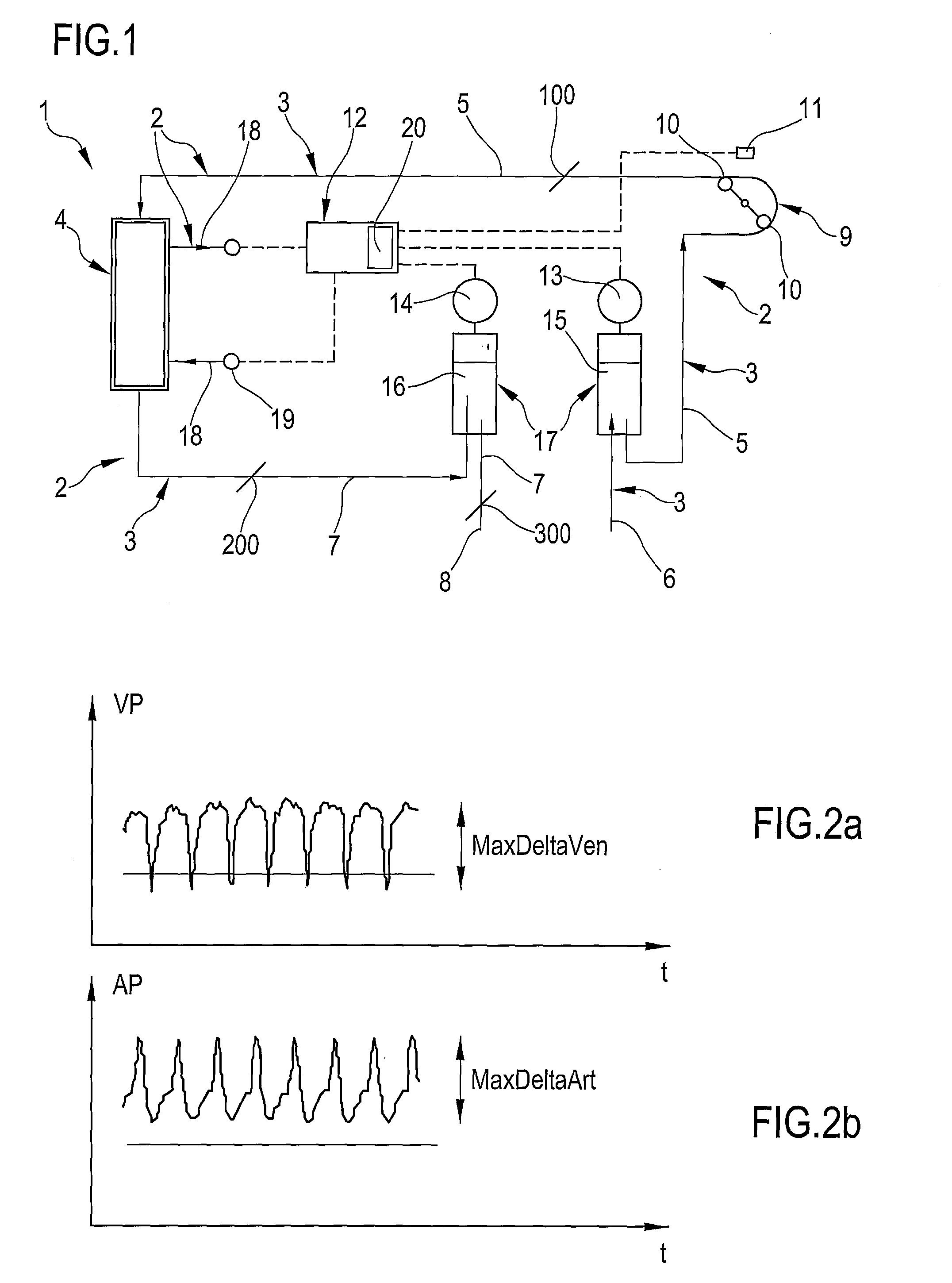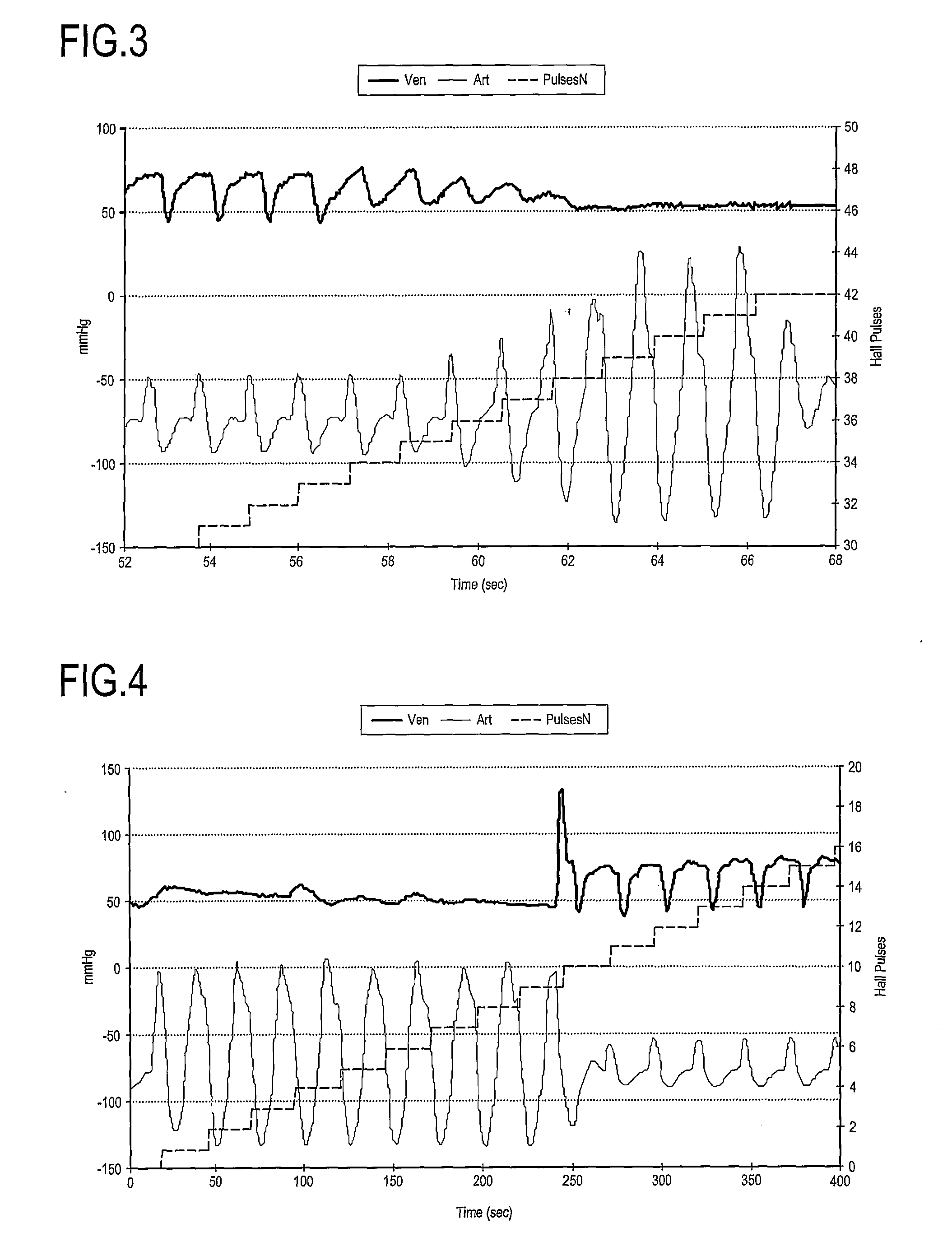Method and a device for monitoring a state of a blood line in a machine for extracorporeal blood treatment
a blood line and extracorporeal technology, applied in the direction of fluid leakage detection, fluid tightness measurement, instruments, etc., can solve the problems of deterioration of blood, not completely preventing the risk of damage to some components of the circuit, and requiring a sophisticated and expensive control device, etc., to achieve reliable and precise, simple structure, reliable and compact in size
- Summary
- Abstract
- Description
- Claims
- Application Information
AI Technical Summary
Benefits of technology
Problems solved by technology
Method used
Image
Examples
first embodiment
[0083]In a first embodiment, illustrated in figures from 1 to 7, the invention enables detection of a stenosis located at a first position of the blood line 3. A possible location of the first position is indicated in the figures with reference numeral 100, but the first position might be any position between the arterial expansion chamber and the treatment device 4 in the arterial line 5 or between the pump 9 and the treatment device 4.
[0084]In this first embodiment, the control device 12 receives from the pulse detection sensor 11 of the peristaltic pump 9 a signal corresponding to the passage of the rotor 10, and further receives, from the arterial blood pressure detection sensor 13, a pressure value measured in the arterial expansion chamber, and from the venous blood pressure detection sensor 14 a pressure value measured in the venous expansion chamber. A possible progression of venous and arterial pressure signals provided by the sensors, in normal operating conditions, is ill...
second embodiment
[0095]In the invention, illustrated in figures from 1 to 2 and from 8 to 10, the invention enables detection of a stenosis at a second position in the blood line 3. A possible location of the second position is denoted in the figures by reference numeral 200, but the second position could be anywhere along the venous line 7 between the treatment device 4 and the venous expansion chamber.
[0096]It is worthy of note that the second embodiment is actuated, as an example, with the machine in by-pass condition, i.e. with the treatment device 4 hydraulically disconnected from the hydraulic circuit. Generally the by-pass condition is not essential but guarantees only a better reliability during detection.
[0097]Consequently, in a case of occlusion in the venous line 7 between the treatment device (dialyser) and the venous expansion chamber, the increase in pressure in the side of the dialyser containing the treatment fluid is greater than the pressure increase in the venous expansion chamber...
third embodiment
[0103]In the invention, illustrated in FIGS. 1, 2, 8 and 11, the invention enables detection of a stenosis at a third position in the blood line 3.
[0104]A possible location of the third position is denoted in the figures with reference numeral 300, but the first position could be any position along the venous line 7 between the venous expansion chamber and the venous access 8 to the patient, i.e. along the venous line downstream of the venous expansion chamber. This third embodiment too is actuated with the machine in by-pass condition, i.e. with the treatment device 4 hydraulically disconnected from the hydraulic circuit. Also in this case, as in the previous one, the by-pass is not essential but makes the reading more reliable.
[0105]In this embodiment, the control device also receives, from the peristaltic pump 9 pulse detection sensor 11, a signal corresponding to the passage of the rotor 10. The control device 12 further receives, from the venous blood pressure detection sensor ...
PUM
 Login to View More
Login to View More Abstract
Description
Claims
Application Information
 Login to View More
Login to View More - R&D
- Intellectual Property
- Life Sciences
- Materials
- Tech Scout
- Unparalleled Data Quality
- Higher Quality Content
- 60% Fewer Hallucinations
Browse by: Latest US Patents, China's latest patents, Technical Efficacy Thesaurus, Application Domain, Technology Topic, Popular Technical Reports.
© 2025 PatSnap. All rights reserved.Legal|Privacy policy|Modern Slavery Act Transparency Statement|Sitemap|About US| Contact US: help@patsnap.com



